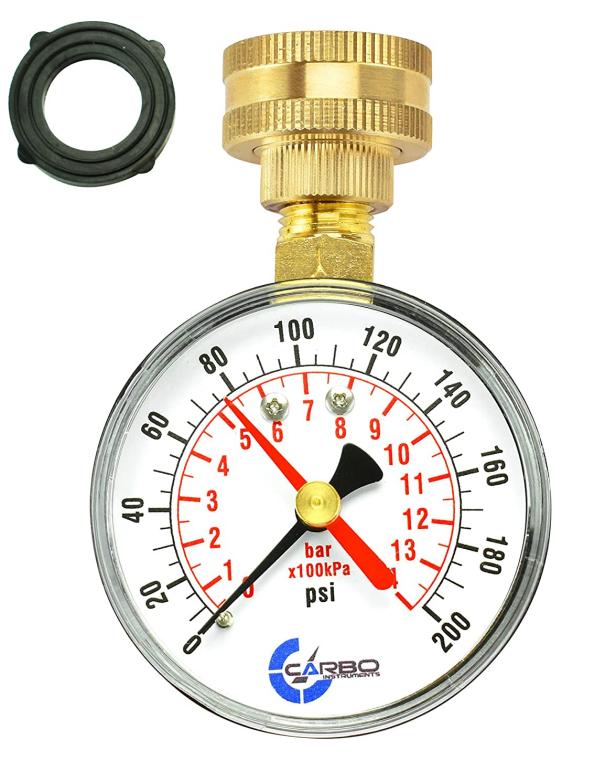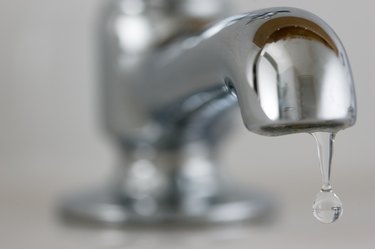Approaches to Deal with Low Water Pressure in Your Home
Approaches to Deal with Low Water Pressure in Your Home
Blog Article
Are you currently interested in resources on Low Water Pressure in the House??

Low water pressure in your home can be an aggravating problem, influencing whatever from bathing to cleaning dishes. If you're experiencing weak water circulation, there are numerous feasible causes and remedies to check out. In this overview, we'll go over usual reasons for low tide pressure and practical actions to address the issue properly.
Introduction to Low Tide Pressure
Low tide stress occurs when the circulation of water from your taps, showers, and other components is weak than normal. This can make day-to-day jobs more difficult and less effective. Recognizing the reasons for low tide pressure is crucial to finding the ideal solution.
Common Reasons For Low Water Stress
Pipeline Obstructions
Over time, pipelines can become clogged with mineral deposits, sediment, or particles, restricting the circulation of water. This is an usual concern in older homes with galvanized steel pipelines.
Corrosion
Rust within pipelines can cause leakages and decreased water pressure. Rust build-up can constrict water circulation, especially in maturing plumbing systems.
Faulty Pressure Regulators
Pressure regulatory authorities are responsible for keeping constant water stress in your home. If they malfunction, it can result in low tide pressure or unequal circulation throughout your house.
Community Supply Of Water Issues
Occasionally, the problem lies outside your home. Metropolitan supply of water problems, such as main line leaks or maintenance work, can momentarily decrease water stress in your area.
Just How to Identify Low Water Stress
Examining Faucets and Fixtures
Beginning by examining the water stress at various taps and components throughout your home. If the problem is separated to details locations, it may indicate localized troubles.
Checking Pipes
Examine noticeable pipelines for signs of leakages, deterioration, or blockages. Take note of any kind of unusual sounds, such as knocking or rattling pipelines, which can show issues within the plumbing system.
Consulting with a Plumber
If you're not able to identify the root cause of low water pressure, take into consideration working with a specialist plumber to carry out a detailed inspection. They can recognize underlying problems and advise ideal remedies.
Do It Yourself Solutions to Deal With Low Water Pressure
Cleaning Up Aerators and Showerheads
Mineral deposits can accumulate in aerators and showerheads, decreasing water circulation. Get rid of and clean these parts on a regular basis to boost water stress.
Flushing Hot Water Heater
Debris accumulation in the hot water heater can restrict circulation and reduce performance. Flushing the tank regularly aids eliminate sediment and keep optimal efficiency.
Inspecting Pressure Regulatory Authority
Guarantee that the pressure regulatory authority is functioning appropriately. Changing or changing the regulator can help restore appropriate water stress throughout your home.
Clearing Clogs in Piping
For small blockages, try utilizing a plumbing serpent or chemical drainpipe cleaner to clear obstructions in pipes. Be cautious when using chemicals and comply with safety standards.
When to Call a Professional Plumber
If DIY efforts fall short to fix the concern or if you suspect significant plumbing problems, it's best to seek support from a qualified plumber. They have the proficiency and devices to address complex concerns safely and properly.
Safety Nets to Keep Water Stress
Normal Upkeep
Set up routine upkeep for your plumbing system to avoid concerns such as rust, leaks, and blockages. Addressing minor troubles early can assist avoid even more substantial repair services later on.
Setting Up a Pressure Booster
Think about installing a pressure booster pump to boost water stress in locations with constantly reduced flow. This can be especially useful for multi-story homes or buildings with high-demand fixtures.
Monitoring Water Use
Bear in mind water usage routines and prevent ill-using the plumbing system. Basic changes, such as shocking showers and washing lots, can assist preserve sufficient water stress.
Verdict
Managing low tide stress can be aggravating, but determining the underlying reasons and executing suitable options can restore ideal circulation throughout your home. Whether it's cleaning up aerators, evaluating pipes, or seeking advice from a plumber, taking positive actions can make certain a stable supply of water for your day-to-day demands.
FOUR WAYS TO FIX LOW WATER PRESSURE NOW
Turning on a shower or faucet only to find the water comes out in a sad, slow drizzle is never a good feeling. How exactly are you supposed to wash a pan or take a quick shower when it takes 10 minutes just to rinse off a little soap? The good news is that when your water pressure is bad, there's always a cause: typically one that can be easily fixed. Here are some of the most common causes of low pressure and what you can do to fix the issue:
DEBRIS AND MINERAL DEPOSIT BUILDUPS
If you notice low water pressure from just one or two of the fixtures in your house, the problem likely has to do with debris buildup. Water is full of minerals and other debris, all of which can accumulate in your pipes and on your fixtures. This can cause a blockage that affects how much water flows through. To fix this, try filling a small plastic bag with white vinegar, and use a rubber band to hang it around your showerhead or faucet. Let the head of the fixture soak for a few hours, and the vinegar should loosen the deposits.
WATER LEAKS
Leaks are another common cause of low water pressure. If water is flowing out of your plumbing through a hole or crack before it can reach your fixture, the pressure coming out of the faucet or showerhead will be lower. A plumbing professional is your best bet for finding and repairing a leak in your water supply pipes.
Leaks are another common cause of low water pressure. If water is flowing out of your plumbing through a hole or crack before it can reach your fixture, the pressure coming out of the faucet or showerhead will be lower. A plumbing professional is your best bet for finding and repairing a leak in your water supply pipes.
FOUR WAYS TO FIX LOW WATER PRESSURE NOW
Turning on a shower or faucet only to find the water comes out in a sad, slow drizzle is never a good feeling. How exactly are you supposed to wash a pan or take a quick shower when it takes 10 minutes just to rinse off a little soap? The good news is that when your water pressure is bad, there's always a cause: typically one that can be easily fixed. Here are some of the most common causes of low pressure and what you can do to fix the issue:
DEBRIS AND MINERAL DEPOSIT BUILDUPS
If you notice low water pressure from just one or two of the fixtures in your house, the problem likely has to do with debris buildup. Water is full of minerals and other debris, all of which can accumulate in your pipes and on your fixtures. This can cause a blockage that affects how much water flows through. To fix this, try filling a small plastic bag with white vinegar, and use a rubber band to hang it around your showerhead or faucet. Let the head of the fixture soak for a few hours, and the vinegar should loosen the deposits.
WATER LEAKS
Leaks are another common cause of low water pressure. If water is flowing out of your plumbing through a hole or crack before it can reach your fixture, the pressure coming out of the faucet or showerhead will be lower. A plumbing professional is your best bet for finding and repairing a leak in your water supply pipes.
Leaks are another common cause of low water pressure. If water is flowing out of your plumbing through a hole or crack before it can reach your fixture, the pressure coming out of the faucet or showerhead will be lower. A plumbing professional is your best bet for finding and repairing a leak in your water supply pipes.
A VALVE ISSUE
If you have low water pressure throughout your home, check your main shut-off valve to make sure it's completely open. You may also want to see if there's a pressure-reducing valve installed. If there is, have a plumber help you adjust the settings to get the pressure you're looking for.
OTHERS USING WATER
Believe it or not, your low water pressure could be caused by your neighbors. If you notice low pressure at certain times of day, it may be because you and the people living next to you have similar schedules - when everyone is showering at the same time, the pressure will be lower in every home. Low pressure throughout the neighborhood may also be caused by an issue with your municipal water supply. If that's the case, call the supplier to see if they're working on the issue.
https://www.rotorooter.com/blog/water-leaking/low-water-pressure-fixes/

Hopefully you enjoyed reading our excerpt about 9 Reasons for Low Water Pressure in Your House. Thanks so much for taking time to read through our blog. Loved our blog? Please quickly share it. Help someone else check it out. I love reading our article about Dealing with Low Water Pressure in Your Home.
Click Here Report this page